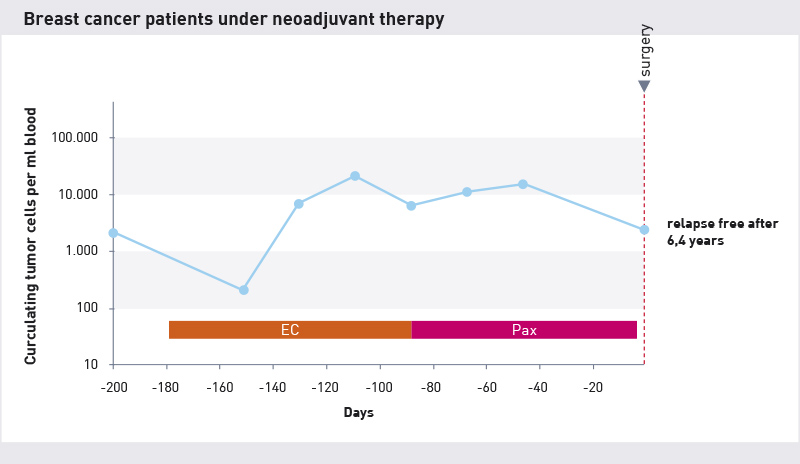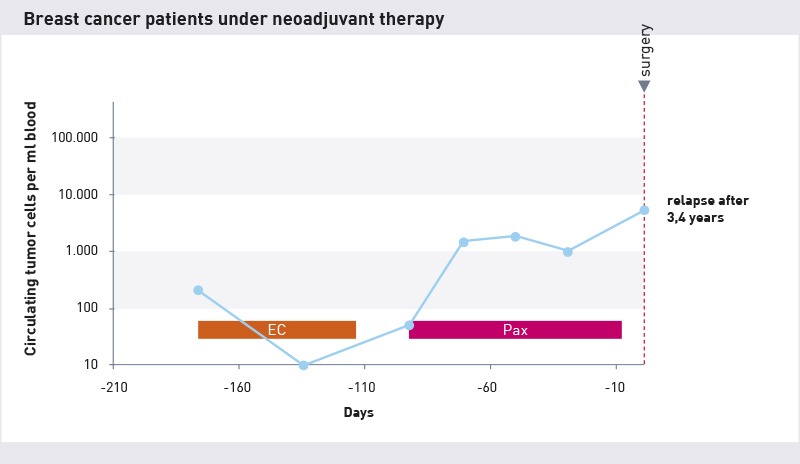Neoadjuvant Therapy
The term neoadjuvant therapy describes a treatment method carried out before surgical removal of tumors.
It may consist of chemotherapy, radiotherapy or hormone therapy. The primary objective of neoadjuvant therapy is to reduce the size of the tumor. In some cases, the tumor may even be seen to completely disappear (complete remission).
maintrac® can be beneficial during neoadjuvant therapy for tracking changes in the number of circulating tumor cells as well as for assessing the effectiveness of the treatment and flagging up early signs of relapse.
Response of circulating tumor cells in neoadjuvant therapy
Neoadjuvant chemotherapy
Frequently prescribed by doctors before surgery, neoadjuvant chemotherapy should reduce the size of tumors.
The first measured value of the maintrac® cell count is always used as a basis value, which has little significance when considered alone. Only the cell count progression, which can be seen after further measurements are taken, can be interpreted.

Decreasing cell counts
At the beginning of chemotherapy, a quick reduction in the number of tumor cells circulating in the blood is often seen. Over the course of therapy, especially once the primary tumor has been eliminated, a rise in the cell-count is common. The treatment should be maintained until the cell count is reduced once again. In some cases, continuation of the treatment after surgery is beneficial.

Increasing cell counts
If no reduction in tumor size is detected, and an increase in the number of circulating tumor cells is seen, this indicates that the treatment is not sufficient. In consultation with the treating physician, the therapy should be modified.
Often a huge increase in the number of cells can be seen, where the mass of cells making up the tumor is attacked by the chemotherapy. The shrinking tumor releases many surviving cells into the bloodstream. The same scenario is also possible in the case of complete remission. In order to prevent a subsequent formation of metastases, therapy should be modified and re-administered until a reduction in the number of circulating tumor cells is visible. In this case, maintrac® can perform the testing of various agents. Additionally, further observation of the cell count progression is recommended after surgery.
Are you looking for more information on neoadjuvant hormone blocking? You can find these on the "hormone / maintenance therapy" page.